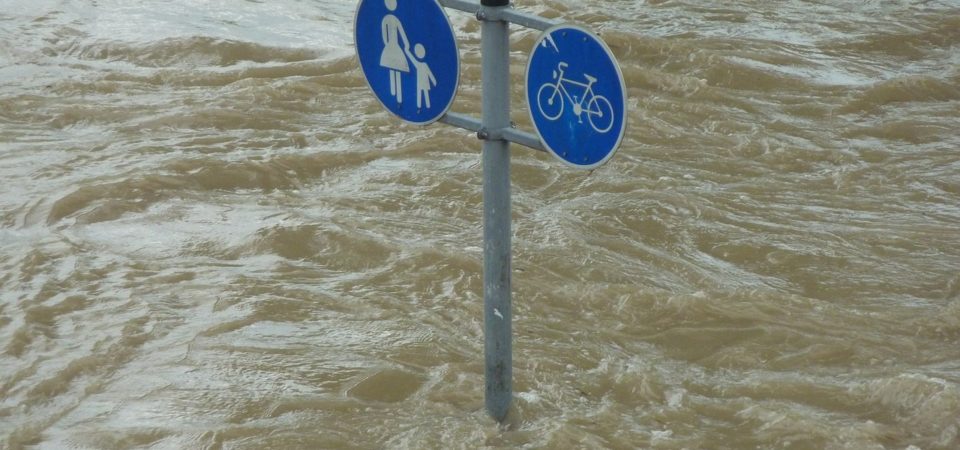This blog was originally published by Down to Earth on August 19, 2019.
Every year is the hottest when immigrants are already living on the margins of survival.
I am sharing an image that has been haunting me. We are locked in a room where we can see from our narrowly opened window that the weather outside has gone berserk — fires in forests, heat waves, extreme rain and storms, all happening as predicted. But our screams are not being heard. As if, it is happening somewhere else. Or not real.
I know this sounds over-dramatic. But it is a fact. The impact of what is clearly a changing weather because of a warmer planet is happening in our face. But we are so distracted — trade wars, Brexit, immigration, economy (good and bad), nationalism, war and much more that goes with it are predominant.
Climate change could not have happened at a worse time in human history it would seem. We simply don’t have the bandwidth to handle it. This is when it becomes clear that things are spiraling out of control. Every year, we are told, is the hottest year, till the next year comes around. Then a new record is broken. It is getting worse. That we know. We hear it; we can even feel it now.
We need to understand what this existential crisis means to people, already living on the margins of survival. It is a matter of record that every extreme weather event — flood or drought — forces people to migrate, searching for work.
It pushes them out of their homes — sometimes this is temporary and sometimes relocation becomes permanent. But now, climate change has become that last straw breaking the camel’s back.
Amitav Ghosh, in his new novel Gun Island, evocatively takes us through the generations of immigrants; when weather disturbances made people leave their homes in search of new livelihoods in the past and now.
The migrant has always been that human face of change — good and bad. It is also a fact that migration is not only because of the push but also because of the pull — the grass is greener on the other side of the Mexican wall.
Today’s interconnected world has simultaneous jeopardies — one, it transports climate-altering carbon dioxide emissions from one country to the global atmosphere and two, it transports global news at the speed of mobile telephony. The push and the pull will only increase in this context.
The question is what will be our response to this induced and hastened migration? Already immigration is defining the politics of many countries. In India, we are discussing how to count “outsiders” and we don’t know what we will do once we have counted them.
In Europe, the public mood (and elections) is being determined by images of hordes of boat people landing illegally; in the US, the wall and the millions that are awaiting entry is taking over airwaves, social media and other public spaces. The “immigration” narrative is real, and already we are doing a really bad job in handling our response — both in words and in action.
It is already adding to societal fear and insecurity; bitterly polarising communities and feeding the nationalist brigade.
Just think. When a white supremacist opened fire and massacred people in El Paso, Texas, USA, he said he was doing this to protect the world from climate change. His cold logic, written on his now taken down blog, is that Americans will never give up their lifestyle, which he accepts is destroying the planet. His answer: remove enough people so that the US lifestyle can be sustainable. Kill them. Stop them from entering the US.
In the past I would have dismissed this rant as madness. But now we are getting to a point where the two crisis points will intersect, indeed implode. As yet, we have little actual data on the causes of migration. We talk glibly about climate refugees because it is hard to understand the nature and gravity of this problem.
This is not to say that migration is bad. The fact is cities and countries have been created because of people who have left homes and settled to build new prosperity.
In India, we know that internal migration is the name of the employment game. Every region has vast numbers of people who come from the regions of distress — hit by flood or drought or destitution — or come because they aspire new opportunity. Every Indian city is an amalgamation of different regions, languages and food habits. But it is reaching tipping points.
In India, we have no idea of the number of people who are migrating — in short- and long-term — because the last census was conducted a decade ago. But from the sheer number of illegal and unauthorised settlements springing up in cities, it is clear that the number of new settlers is huge. What this will do to politics is now apparent — from domicile reservations to migrant counting. It will only get worse.
I am writing this without an ending. I have no conclusions to offer. But I do believe it is time we discussed the true nature of our climate jeopardy. In human terms.
The MAHB Blog is a venture of the Millennium Alliance for Humanity and the Biosphere. Questions should be directed to joan@mahbonline.org
The views and opinions expressed through the MAHB Website are those of the contributing authors and do not necessarily reflect an official position of the MAHB. The MAHB aims to share a range of perspectives and welcomes the discussions that they prompt.
